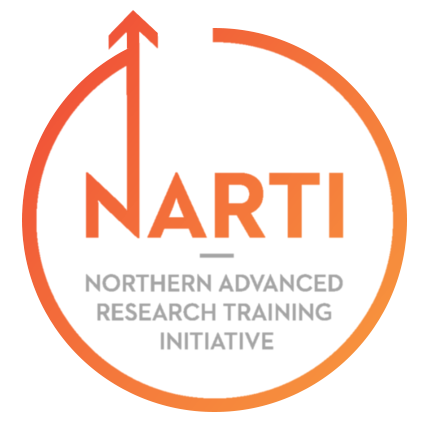Date/Time
Date(s) - 14/03/2018 9:00 am - 6:00 pm
Location
University House
Audience:
Doctoral Students, Early Career Researchers
Seminar objectives
The seminar will run over three full days with a two-day introduction and a one-day advanced session. The break in the seminar is to enable participants to digest the material from the introduction, undertake the required reading and to gain experience with the LISREL programme. Selected applicants are expected to participate in the three full days so apply only if you are able to commit to this.
Introduction (29-30 January)
The purpose of this intensive seminar is to provide a user-friendly, in-depth introduction to (covariance-based) structural equations modelling (SEM) using the LISREL program and the SIMPLIS command language. The seminar’s emphasis is on understanding and applying SEM as a tool in substantive research and its target audience includes doctoral students and academic researchers involved in quantitative modeling and data analysis. Important: The seminar assumes prior knowledge of data analysis and multivariate statistics (including factor analysis and regression).
The seminar seeks to familiarize participants with the various stages associated with conceptualizing, identifying, estimating, and evaluating structural equation models, highlighting key decisions and potential problems at each stage. Following an introduction of SEM as an analytical approach, issues associated with the theoretical specification and graphical representation of a full latent variable model are discussed. These set the background for applying the LISREL program to estimate the model and assess its fit along different criteria. Strategies for model modification and cross-validation are also outlined. To enable participants experience SEM “in action”, the above issues are illustrated with a concrete example of a model estimated by the LISREL program. Detailed guidance for setting up and interpreting the relevant input/output files of the program is also provided.
Once course participants have become familiar with the basic principles of SEM and the use of the LISREL program, several different types of models will be illustrated, such as regression-type models, path analysis models, measurement models, and MIMIC models. In addition, various LISREL programming issues (e.g., fixing specific parameters, incorporating equality constraints, undertaking an effect decomposition) will be discussed as will problems that might be encountered.
The seminar will take the form of interactive workshop sessions, placing particular emphasis on student participation.
Advanced (14 March)
The purpose of this intensive seminar is to discuss selected advanced topics in structural equation modelling (SEM) using the LISREL programme. The seminar also addresses measurement theory and scaling issues and discusses alternative approaches for developing and evaluating multi-item measures. The seminar is designed for doctoral students and academic researchers who have already had a basic course in SEM and wish to develop their skills at a more advanced level. It is expected that applicants have previous knowledge of data analysis and multivariate statistics and, ideally, some prior experience with the LISREL programme.
The seminar seeks to familiarize participants with the various stages associated with conceptualizing, operationalizing, estimating, and evaluating complex SEM models, highlighting key decisions and potential problems at each stage. The content of the seminar is not fully fixed but will be partly tailored according to the needs, prior experience, and interests of the participants. The following topics are most likely to be among those covered:
- review of SEM model specification, identification and estimation issues
- fit assessment and model modification strategies
- cross-validation approaches
- mediation and moderation
- observed variable models
- reflective and formative measurement models
- higher-order models
- single-item measurement
- parceling strategies
- multi-sample models
The above topics will be illustrated by using the LISREL program to estimate the relevant models. The seminar will take the form of interactive workshop sessions, placing particular emphasis on student participation. It assumes a high degree of interest and motivation on the part of the participants and a willingness to actively contribute to the learning process.
Further seminar and programme details and readings will be sent to selected participants in due course.
Professor Adamantios Diamantopoulos BA MSc PhD DLitt holds the Chair of International Marketing at the University of Vienna, Austria. He is also Visiting Professor at the University of Ljubljana, Slovenia and Senior Fellow at the Dr. Theo and Friedl Schoeller Research Center for Business & Society, Nuremburg, Germany. During the academic year 2012/13, he was the “Joseph A. Schumpeter Fellow” at Harvard University. His main research interests are in international marketing and research methodology, and he is the author of some 150 journal articles in these areas. His work has appeared, among others, in the Journal of Marketing Research, Journal of International Business Studies, Journal of the Academy of Marketing Science, International Journal of Research in Marketing, Journal of Service Research, Journal of International Marketing, Journal of Retailing, MIS Quarterly, Organizational Research Methods, Psychological Methods, Information Systems Research, and Journal of Business Research. He has been the recipient of several Best Paper Awards, including the 2013 Hans B. Thorelli Award for the article published in Journal of International Marketing that has made the most significant and long-term contribution to international marketing theory or practice. He sits on the Editorial Review Boards of a dozen academic journals, and acts as a referee for several professional associations and funding bodies. In 2000, he was elected Fellow of the British Academy of Management and in 2013 Fellow of the European Marketing Academy.
Programme (all three days)
08.45 Registration
09.00 Seminar commences
11.00 Break
13.00 Lunch
16.00 Break
18.00 Seminar ends
